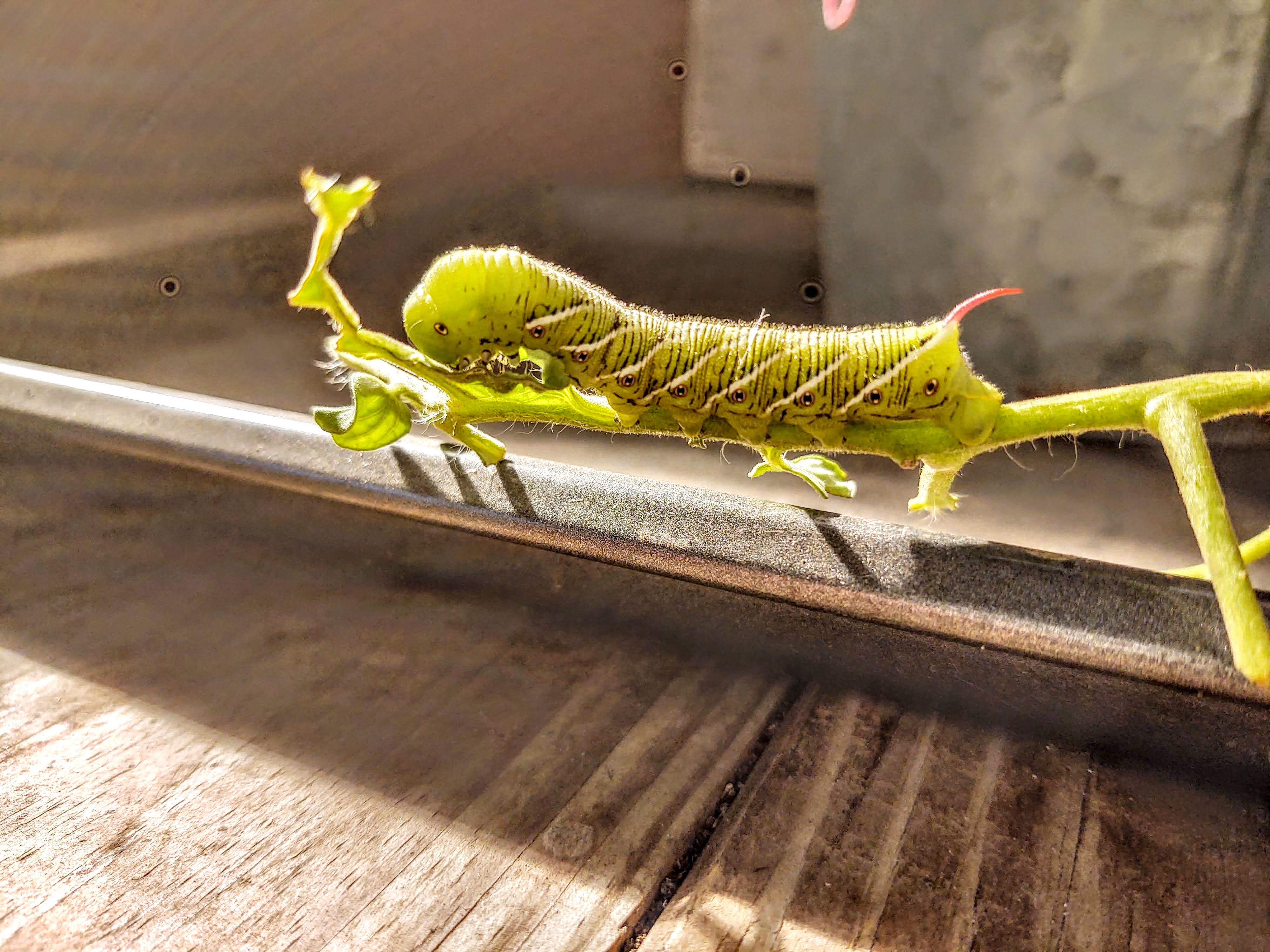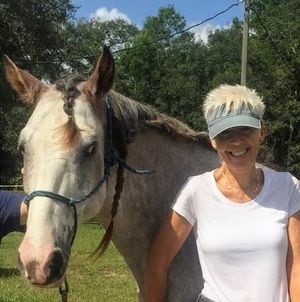
We’ve enjoyed a breeze most of the day. Somewhere far to the southeast is a tropical system that has Florida in its sights. We haven’t seen much hurricane activity this summer, and suddenly there are four colored blips on the NOAA Hurricane Center map. The red one called Ian is threatening to barge into Florida with an impressive show of bluster, and the governor has declared a state of emergency. That seems a bit premature to me, but this is an election year and I suppose he wants to show us all that he’s on top of things. We are currently in Ian’s path, but after living through over 40 Florida hurricane seasons I tend to be somewhat skeptical about the accuracy of a forecast 5 days out. We have a generator that runs the pump and a plan for the equines. We have gas, bottled water and the obligatory canned food. We decided to stock up early, avoiding the mob of nervous Floridians who strip the grocery shelves of water, bread, milk and beer. We inevitably lose power when these storms roll through, sometimes for over a week. Not everyone has a generator, and you can only do so much with ice. It gets really old, really fast. But I digress. I don’t take these threats lightly, but the what ifs are temporarily on hold, for tonight I’m preoccupied with another crisis. There I stand in my pajamas, holding a black light and looking for what has eaten a formerly vigorous tomato plant. It now looks like the survivor of an apocalyptic scorched-earth event, foliage stripped, a few tiny tomatoes clinging to bare stalks. As I suspected, the culprits are tomato hornworm caterpillars that are brilliantly camouflaged until they glow in black light. I’ve picked their icky, rubbery-green bodies off the leaves they’ve been devouring and have flung them out into an area far away from the garden. Despite the havoc they have wrought, I feel bad about killing them. They will become five-spotted hawk moths, insects so large that they are often mistaken for hummingbirds. They can also carry some sort of parasitic wasp, and by killing them, you eliminate the wasp which in turn can reduce future hornworm populations. I think the hawk moths are cool, and I love wasps. There have been assorted wasp families in the greenhouse, and for the most part they are good tenants. We’ve made an agreement: you may fly around my head, but you may not land on me, and I will leave you alone. They are fascinating to watch, and they have tolerated my interest. They are also wonderful predators and pollinators, so I am happy that they have decided to call the greenhouse home. Ant hills come and go; I give them wide berth and I’ve discovered that with regular watering they move on to more hospitable environments. I step over the giant "palmetto bugs" (a/k/a roaches) in the barn. I hope that the house wrens catch most of the squash bugs but there is always too much zucchini anyway, isn’t there?
We were not gentle with the land when we moved to this property. It was scrubby undergrowth under stunted trees and we needed pasture, yet it was a habitat that had flourished far longer than I’ve been on this earth. A few larger trees were left alone but everything else was cleared and burned. As an inadequate apology we have planted fruit trees and spread countless yards of mulch. We are carefully building soil where there was sand. After nearly four years we see life beginning to return: anoles, frogs, toads, butterflies, dragonflies, fireflies on cool, damp evenings. We feed birds, we marvel that snakes climb fences and we occasionally relocate squirrels, but we try not to destroy life. We garden organically and leave the soil undisturbed as much as possible. Regenerative farming is all the rage these days, but it turns out it’s just easier to let nature do what nature does.
Our goal is to be able to produce much of what we eat. As plant-based diners, this can be achieved on 2.5 acres as we don’t need space for cattle or chickens. Cattle seem a lot like slobbery, weird horses, and I have two budgie besties so how could I possibly eat a bird? Agree or disagree, this is the way my mind works. Are we vegan? No. But we’re close. We have been serious about growing food for several years, and have profound respect for farmers who actually make a living doing it. Not only is it hard work, but unseasonably warm winters can fool trees into budding, only to be smacked down by a sudden hard freeze. Blights come and go. There are droughts and floods. Finally, we are all at the mercy of the weather systems on our planet, and people who grow plants are probably more aware than most that the climate change is real.
While my efforts to remove the hornworm caterpillars this evening are satisfying, the truth is that there will certainly be more caterpillars, if not tomorrow, next week. As I do a final stall check and flip off the light in the barn, there is a warm gust of air from the southeast on my face, and I remember Ian. I feel a little knot in my stomach and I try to ignore it. Ian will go where he’s going to go, and farm girls don’t get to linger in bed after a night of restless sleep.
